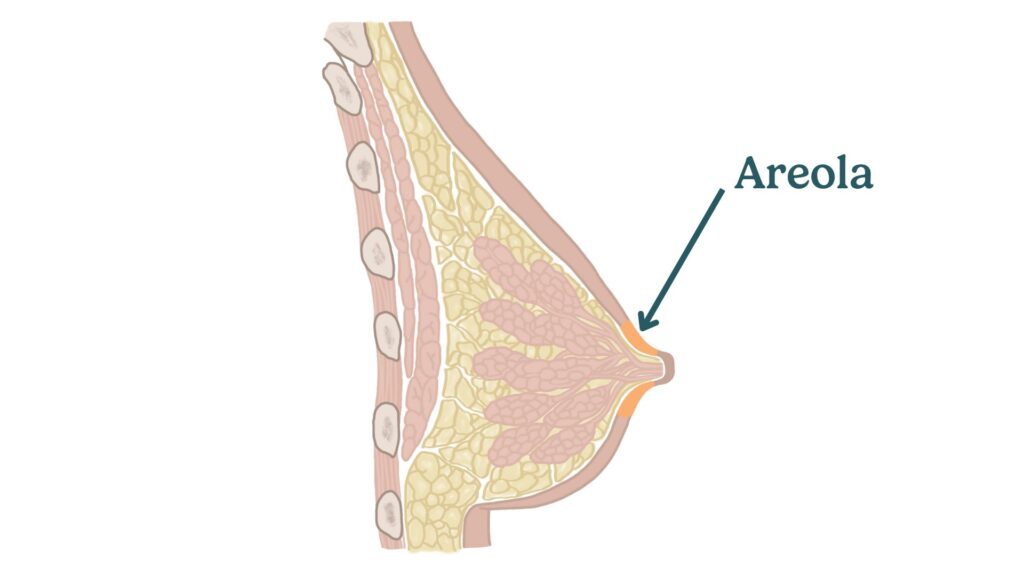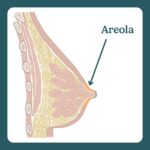areola

What is the areola?
The areola is the darker circular area surrounding your nipple. It contains small glands called Montgomery glands that secrete an oily substance to keep the nipple area lubricated and protected during breastfeeding.
The color and size of the areola can vary among women and may change during pregnancy and breastfeeding.
What to watch out for
Certain issues related to the areola can affect breastfeeding. Here are some warnings and tips to help you manage potential problems:
Pain and Cracking
If you experience pain or cracking in the areola, it might be due to a poor latch. Ensure your baby is latching properly by taking a breastfeeding course and/or consulting a lactation consultant. Using nipple balms can help soothe and protect the skin. Read more about a good latch and other tips.
Infections
Infections can cause redness, swelling, and discomfort in the areola area. If you notice these symptoms, seek medical advice. Continue breastfeeding or pumping to maintain milk flow and prevent further issues. Read up on mastitis.
Sensitivity
Some women may experience heightened sensitivity in the areola, especially in the early days of breastfeeding. This is usually temporary. Gentle nipple care and proper latching techniques can help alleviate discomfort.
If any of these issues persist for more than a week, or if you have severe pain, it’s important to seek help from a healthcare professional or lactation consultant.
Physical limitations or health circumstances
Certain health circumstances can affect the areola and breastfeeding:
Hormonal Changes
Conditions like thyroid disorders or polycystic ovary syndrome (PCOS) can affect the hormonal balance, impacting the areola’s sensitivity and milk production. Proper management of these conditions can support successful breastfeeding.
Breast Surgery
Previous breast surgeries, such as augmentation or reduction, may affect the areola and its glands, potentially impacting breastfeeding. Consult with a healthcare professional for guidance based on your specific situation.
Skin Conditions
Conditions like eczema or dermatitis can affect the areola, causing irritation and discomfort. Using appropriate skincare products and consulting a dermatologist can help manage these conditions.
Other terms
Here are some related terms that are important to understand in relation to the areola:
Montgomery Glands: These are the small glands around the areola that secrete an oily substance to keep the nipple area lubricated and protected during breastfeeding.
Nipple: The central protrusion of the breast, surrounded by the areola, through which milk is delivered to the baby.
Latch: The way a baby attaches to the breast, covering the nipple and part of the areola. A proper latch is crucial for effective breastfeeding. Read more about a good latch and other tips.
Engorgement: When the breasts become overly full of milk, causing them to feel hard and painful. This can affect the areola and the overall breastfeeding experience. Read more about engorgement and how to manage it.


